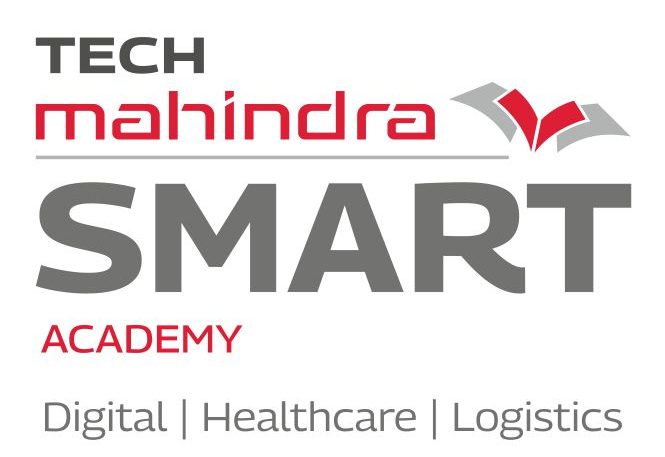Table of Contents
ToggleGDA (General Duty Assistant) is a healthcare helper who supports doctors, nurses, and patients in hospitals or clinics.
This role is becoming crucial in India’s growing healthcare world. This blog is for you if you’re leaving school or seeking a promising career. We will cover everything you need to know about this job like what a GDA does and how much you can earn. Plus, we will also discuss tips to succeed in your career.
Who is a General Duty Assistant?
It’s the main support person for nurses and doctors in medical centers. Their job is to handle important tasks that keep patients safe and hospitals operating smoothly. This includes:
- Helping patients with everyday tasks such as washing and eating.
- Assisting nurses by changing bedding and safely moving them.
- Checking the patient’s health and quickly reporting any changes to a nurse.
- Ensuring patient areas are clean and safe to stop germs from spreading.
- Managing logistics like lab equipment and helping with paperwork.
GDA is a crucial staff member who helps the medical team run smoothly. It’s also the fastest way to start a healthcare career.
Why become a GDA?
Here are some reasons to consider a career as a General Duty Assistant, rewritten in simple words:
- GDA training requires only a few months unlike a doctor or nurse. You just need to have passed Class 10 without needing high exam scores.
- India’s medical care is growing daily. It means that there is a massive need for GDAs across the entire country.
- It’s a perfect role for those who like to help others and are active. You will help patients feel better and recover faster.
- You get to choose from multiple work environments including hospitals and nursing homes.
- It’s a reliable career path as healthcare is always needed. Plus, it provides an excellent starting point to learn and move up in the medical field later on.
Requirements and Course Structure
(A) Eligibility Criteria
- You must have passed Class 10 which is the key requirement for most training programs.
- You must be at least 18 years old for this job.
- You must be physically fit and have good endurance. It’s because this role involves a lot of standing and moving patients.
(B) Course Details
- Training takes about three to six months. Some complete diploma courses can even last for a year.
- You will learn about things like the human body basics and patient rights.
- You will practice essential skills such as how to check a patient’s temperature and keep things clean, to control infection.
- You will also gain practical experience by working in a real hospital under guidance.
(C) Course Fees
- Course fees can vary widely. But it usually ranges from ₹5,000 to ₹90,000 based on your institute and whether it’s a certificate or a diploma.
- You might also be able to get financial help from the government through programs like the NSDC to cover your course fees.
(D) Certification
- You should pick an approved training institute. Many adhere to the rules set by the Healthcare Sector Skill Council (HSSC).
- Make sure your certificate is from a recognised place so that it is valid and can be accepted by employers.
GDA Roles and Responsibilities
A General Duty Assistant ensures that patients are comfortable and the medical area is clean and safe.
Daily Tasks
- Helping patients with personal needs such as washing and dressing. You will also help them eat and move safely like getting out of bed or onto a stretcher.
- Checking vital signs like pulse and immediately telling a nurse about any changes. It’s a simple but important task for patient safety.
- Changing beds and cleaning surfaces to stop infection. It keeps both the patients and the environment safe and hygienic.
- Transporting patients to other areas like X-ray and delivering lab samples or paperwork.
Work Environment
GDA can work in different settings such as:
- Large hospitals
- Small clinics
- Nursing centers
- Home care
Skills Needed
- You must have stamina for long hours of standing and safely helping patients move.
- You need empathy and good communication skills to work with people who are sick or stressed.
- You must be able to coordinate with nurses and other hospital staff.
- You should be ready to work in rotating shifts like mornings or nights.
Career Scope
- Pay Scale
- The majority of general duty assistants start by earning ₹10,000 to ₹15,000 per month in their first job. This can sometimes be lower in small towns.
- Your salary can increase to ₹15,000 to ₹20,000 or higher after a year of experience.
- You will earn much more if you work in a city or work night shifts. Gaining specialised skills and experience will also lead to higher pay.
- Career Growth
- You can become a Senior GDA or Lead GDA after a few years of experience. You will help monitor a ward and coordinate with other assistants.
- You can also move into specialised support roles in areas like the ICU or Maternity Wards with more training.
- Many GDAs use their experience to then enroll in formal nursing diplomas or other paramedical courses to become certified medical workers.
- Some experienced GDAs further move into supervising home care agencies or starting their own support centers.
The best thing to do is get more experience and try to get a job in a bigger hospital for a better salary and job title.
How to start your Training
1. Picking the Right Institute
- Make sure to enroll in an institute that HSSC/NSDC officially recognises. It ensures that your certificate is valid and accepted by employers.
- Check that your course includes live practice in a skill lab and an internship or workplace training.
- Ask if the institute helps with placements or is partnered with local hospitals and clinics.
- Look for schools with great teachers and good practice areas where you can learn and rehearse patient care and safe lifting techniques.
- Understand the fee structure and ask if government subsidies or scholarships are available to help you pay.
2. How to Prepare
- Improve your stamina as this job requires standing and moving patients.
- This job can be demanding. Focus on having a positive attitude and patience as these skills are essential for patient care.
- Be ready to work in rotation shifts such as nights and weekends.
- See it as your first step in healthcare and not your last. Think about how you can grow further.
- Save all your certificates and attendance records to help you when you start applying for jobs.
Tips for Success
Follow these simple steps for a successful career:
- Choose an institute that offers strong job placement and hands-on training.
- Master necessary tasks like safe patient transfer and infection control. Be reliable in every task you do.
- Show up on time and always be professional. Trust and reliability are everything in healthcare.
- Your ability to talk to others and show empathy will help you distinguish yourself from others.
- Learn how to communicate well and work with nurses and doctors. It will help you get noticed and be successful.
- Look for short courses in specialised areas like elder care or dialysis. Learning them will help you earn more and get more opportunities.
- Get to know your team and understand how the hospital works. If you are known as a reliable and helpful worker then this will automatically lead to better job opportunities.
- Know about your team and the hospital’s daily operations. Being reliable and helpful will naturally lead to better job opportunities.
- Plan well in advance. Set a clear goal for your career like becoming a nurse or starting a home care business. It will help you focus on the right skills and opportunities today.
What to Expect?
Keep the following points in mind while choosing GDA as a career:
- The starting salary may be low primarily if you work in small towns or hospitals.
- Big jumps in your salary or position only happen when you gain experience or move to a bigger city or hospital.
- This job is about supporting the medical team. If you want to become a full nurse then you will need to get further education.
- You should expect to work on nights and weekends. And be ready to face critical situations like handling patient emergencies.
- This job is physically and emotionally challenging even though it’s a support role. You will be working with vulnerable patients in a busy environment.
- You will get much better pay in a large private hospital in a metro city than in a rural clinic. Moving to other places can unlock better opportunities.
Why Choose a SMART Academy?
Here are the reasons why you should choose Tech Mahindra SMART Academy for your GDA course:
- We provide you with the latest curriculum designed by experts to meet today’s industry needs.
- You get hands-on training right inside real hospital environments.
- Our academy partners with respected universities to ensure your certificate is valid and accepted everywhere.
- We help you gain work experience through internship programs during your training.
- Smart Academy provides placement opportunities to help you find work with top hospitals and clinics.
- Our training teaches you essential soft skills like communication and empathy. It helps you deliver exceptional patient care and boost your career.
Conclusion
Becoming a General Duty Assistant is a smart way to become a member of the medical staff. You can start working quickly due to basic job requirements. Starting salary is low but can be improved through experience and skills.
The best thing about the GDA job is that it’s a stepping stone. This role offers the experience you need to move into better jobs like nursing or supervision later on. If you are kind and are ready to work hard then the GDA provides a stable career in healthcare.
FAQs
No. You don’t need to clear NEET or become a full nurse for this job. This job is for a support role and most programs only require you to have passed Class 10.
The training requires three to six months. You are ready to start working as a GDA after completing this course.
The pay starts at about ₹20,000 to ₹25,000 per month for freshers. Remember that places like smaller towns might pay less. Your pay can increase to ₹30,000 to ₹35,000 per month or more once you have experience.
Yes. This job provides decent growth opportunities. You can move into senior GDA roles or become a ward supervisor when experienced. You can also get special training to work as an ICU support assistant or dialysis technician.
Yes. You will be required to perform physical work like moving patients and standing for long shifts. You will also deal with patients who are old or sick which can be emotionally challenging.
Yes. GDAs work in shifts different shifts as medical centers are open at all times. So be ready to work night shifts and on weekends.


